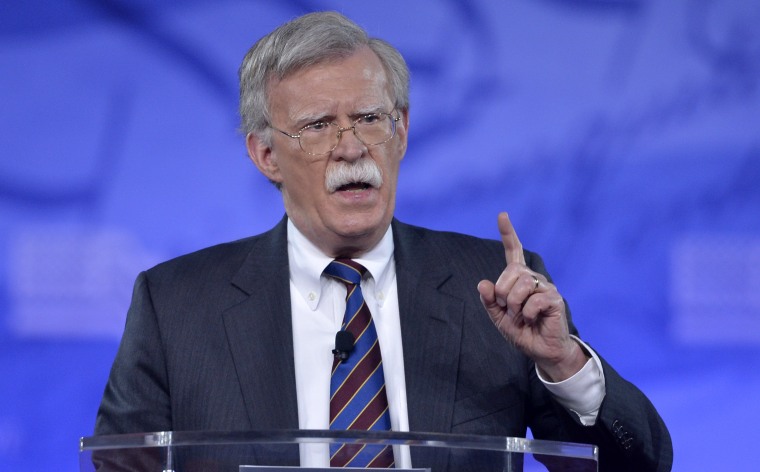Late last week, Donald Trump claimed that Robert C. O'Brien, the special presidential envoy for hostage affairs at the State Department, gave the president a special compliment. Trump, O'Brien said, is "the greatest hostage negotiator" in American history. At a campaign rally in Green Bay over the weekend, the president repeated the boast.
To the extent that reality matters, O'Brien didn't say the line that Trump attributed to him. But putting aside this obviously important detail, what's the secret of the president's success in freeing hostages?
Evidently, it has something to do with agreeing to terms and then abandoning them.
National security adviser John Bolton acknowledged Sunday that the U.S. had promised to pay North Korea for the release of American college student Otto Warmbier in 2017, but he said the U.S. never made any payment. [...]In an interview on "Fox News Sunday," Mr. Bolton was asked whether it was true that the U.S. had signed a pledge to pay North Korea for Mr. Warmbier's release. "That is what I am told, yes," he responded.Mr. Bolton said the U.S. never did pay the money North Korea had requested, however.
Let's take a step back to review how we reached this point. North Korea held Otto Warmbier captive for more than a year, before eventually releasing him. The young man returned home with a severe brain injury and died soon after.
It was therefore jarring to learn that North Korea billed the United States $2 million for Otto Warmbier's hospital care. The Washington Post reported last week that the Trump administration accepted the bill and agreed to its terms.
On Friday, the president himself described the Post's article as a "fake news report." Two days later, his White House national security adviser effectively conceded that the reporting was correct.
To be sure, I'm glad North Korea didn't get a $2 million check from the Trump administration. It's ridiculous that officials in Pyongyang even asked.
That said, there are a few relevant takeaways from the story. First, North Korea, Trump's love for and trust in Kim Jong-un notwithstanding, now knows the White House won't necessarily follow through on its assurances.
Second, the world now knows that, when it comes to freeing Americans detained abroad, Trump is prepared to make promises he has no intention of keeping.
Third, when the president refers to reporting as "fake news," he really just means reporting he doesn't like.
And finally, let's not forget that Trump has spent much of his adult life agreeing to pay bills, and then refusing to do so. I guess he brought those experiences with him to the White House?
